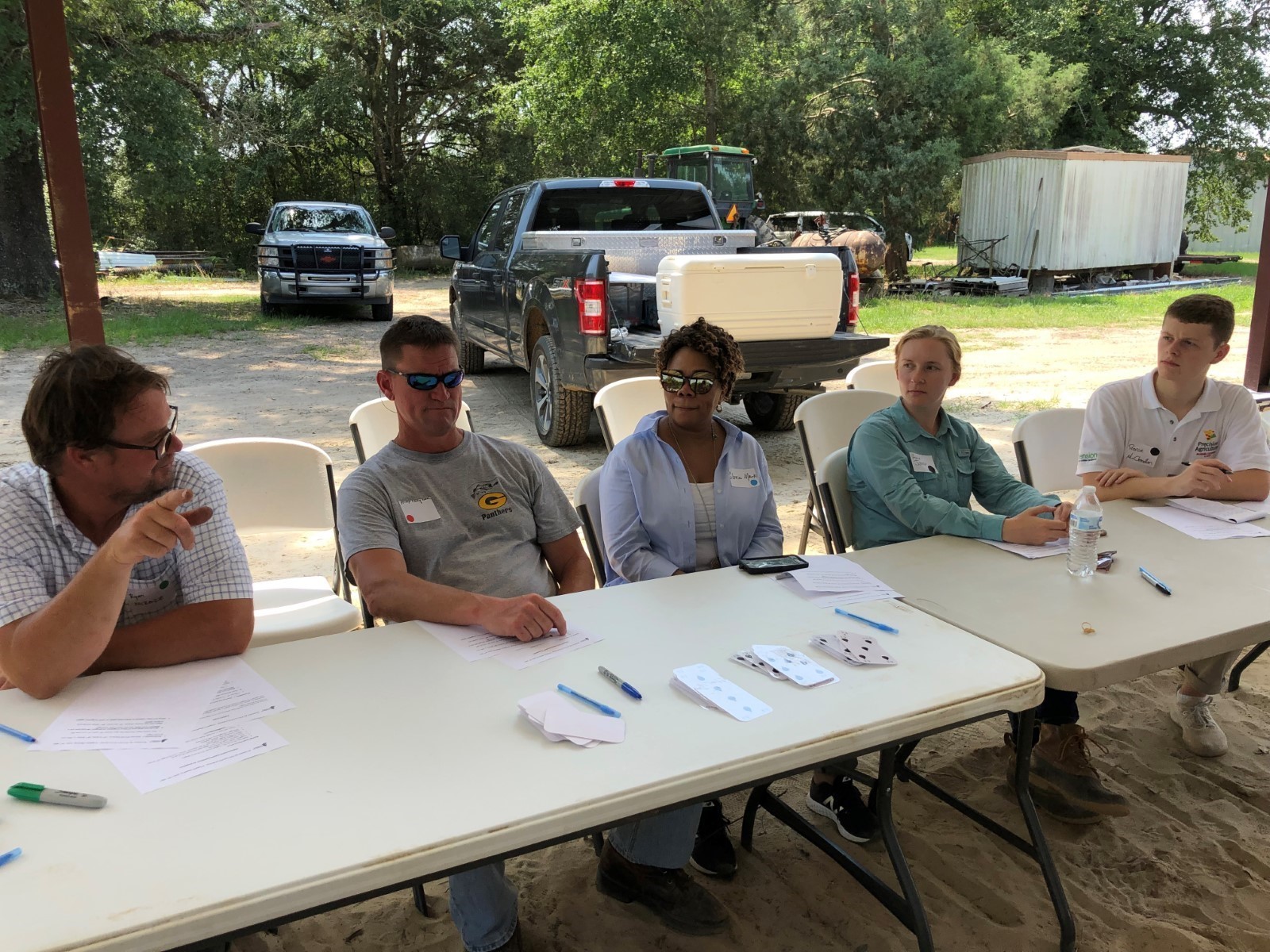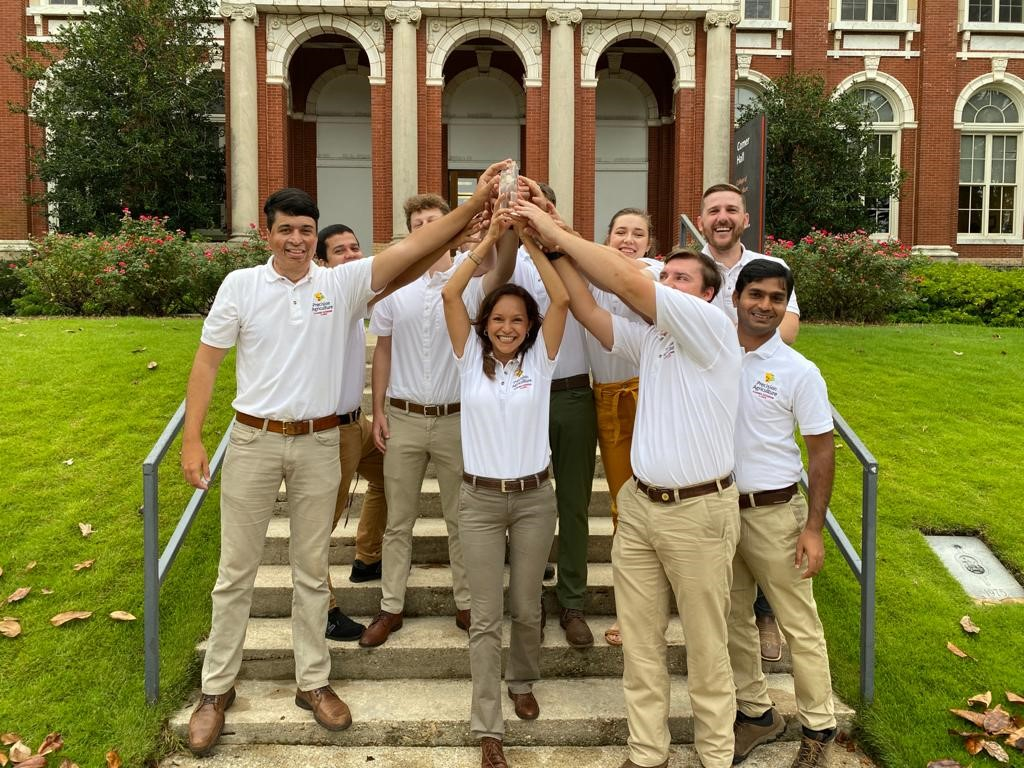
AN AUBURN UNIVERSITY STUDENT RESEARCH SPOTLIGHT ON THE ECONOMIC AND ENVIRONMENTAL CONSEQUENCES OF IRRIGATION SYSTEM MAINTENANCE.
When you eat a handful of roasted peanuts, how often do you think about the irrigation system that may have helped the peanut plants grow? The answer is probably not too often. But for the farmers who grow those peanuts, the functionality of that irrigation system is always on their minds and could mean the difference between a good and bad growing season.
Dr. Brenda Ortiz, Extension Specialist and Professor with the Department of Crop, Soil, and Environmental Sciences, undergraduate Pierce McClendon, and the precision agriculture lab team are on a mission to provide irrigation-related resources to farmers to reduce crop yield loss, energy, and water usage.
McClendon, a native of Priceville, Alabama, began in the Department of Crop, Soil, and Environmental Sciences as an undergraduate research assistant in 2020 for Dr. Eve Brantley. McClendon was encouraged to pursue a summer internship with the Alabama Cooperative Extension System. His advisor put him in touch with Alabama Cooperative Extension System (ACES) Director Dr. Mike Philips, who suggested he contact Dr. Brenda Ortiz to get involved with her ongoing irrigation research.
During the summer of 2020, McClendon joined Dr. Ortiz’s lab to collect samples, install soil sensors, and speak with farmers about irrigation issues. His first day on the job involved installing a Trellis Watermark sensor (pictured above), which measures how hard a plant needs to work to access water in the surrounding soil.
McClendon’s primary interests are the irrigation of peanuts, corn, and cotton, specifically when and how much irrigation to apply to the crops. Some of his research involves determining the effects of precision irrigation application on crop yield and water use.

The research team chats with farmers at a farmer focus group in Samson, AL.
In previous years, the research group focused on training farmers in Alabama to use soil moisture sensor data to apply variable rate irrigation (VRI) in their fields. This type of irrigation allows farmers to vary water application depending on soil, crop, and other conditions.
Over the summer, the team hosted several farmer focus groups that brought together local Extension agents and specialists, farmers, crop consultants, and other research personnel to facilitate discussions around effective and sustainable irrigation, as it is imperative these groups can identify the most common problems in the operation and maintenance of center pivot irrigation systems.
“Being involved with agriculture has changed McClendon’s perspective on water resources issues in Alabama. A big problem facing farmers is runoff, which can cause nutrient loss and soil degradation.
The opportunity allowed him to conduct research and assist with the Extension publication, “Operation & Maintenance Problems of Center Pivot Irrigation,” which discusses the economic and environmental impacts of faulty irrigation systems. The publication highlights common problems with center pivot irrigation, how to identify them, and how to correct them.
McClendon has had the opportunity to present his research at the Virtual American Society of Agronomy (ASA), Crop Science Society of America (CSSA), and Soil Science Society of America (SSSA) Conference and will be presenting at the 2021 Alabama Water Resources Conference in September.
The team hopes to produce another publication based on peanut irrigation scheduling research they have conducted over the summer.
In addition to the Extension publications, Dr. Ortiz’s lab produces a weekly newsletter during growing seasons. In previous years, they published a weekly irrigation newsletter that detailed crop water demand, soil moisture content, weather conditions, and data from soil moisture sensors. This year, they plan to focus more on videos that cover related topics with more clarity and brevity.
For students wanting to get involved with irrigation work, McClendon advises to pursue a summer internship or undergraduate research position early in your college career. Work for a professor or lab group as soon as you can to discover what research is like and to gain invaluable experience.
“Do not be intimidated by professors”, McClendon said They were all very friendly and helpful when he approached them with interest in their research.
According to McClendon, finding a wonderful team is crucial to successful work. “None of the things that I’ve been able to do would be possible without all of the work that the rest of our team puts in, especially Dr. Ortiz.”

Dr. Ortiz’s lab team celebrates her being awarded with the ALFA Duncan Award for Excellence in Production Agriculture and Forestry Extension.
